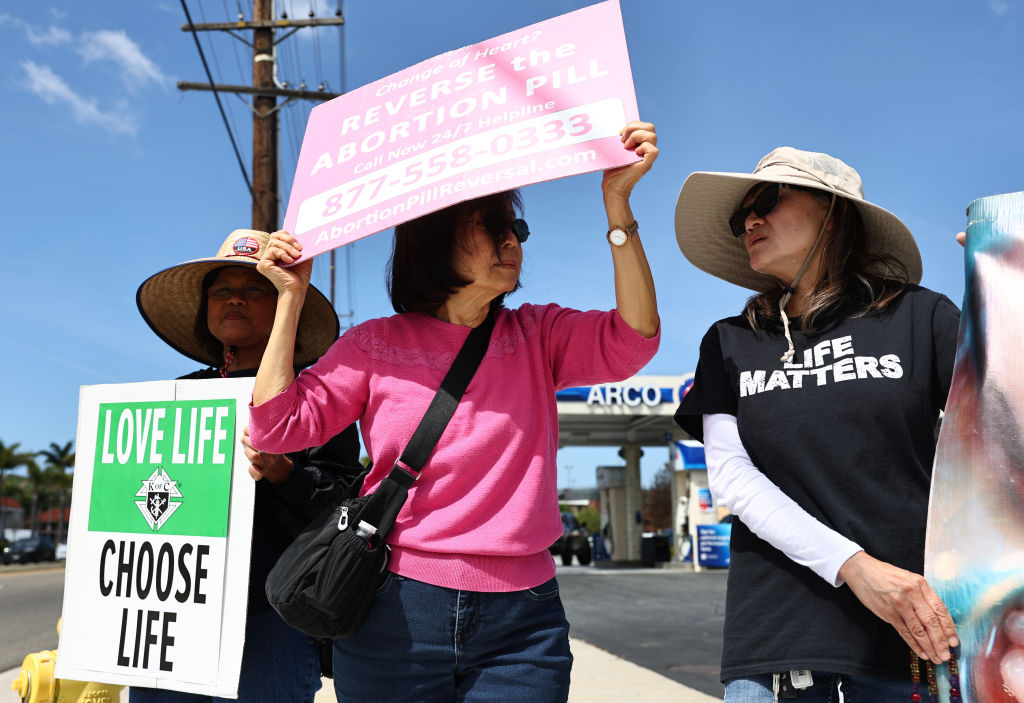The politics of the abortion issue in the post-Dobbs environment has been dramatically altered, both by the introduction of state-level restrictions in Republican states and by pressure campaigns in Democrat-dominated states to increase the subsidization and solidification of existing lax abortion policies. But the most significant development in the abortion space in recent years wasn’t a decision that came from the Supreme Court, but from the Biden administration – first temporarily (with Covid as the justification) and then permanently granting the ability to dispense abortion-inducing pills via telehealth, without the previously required visit to a doctor.
Even after unsuccessful lawsuits that challenged the practice – in 2024, a unanimous decision held that plaintiffs had no standing to challenge the Food and Drug Administration on the subject – telehealth abortion pills remained controversial, as in some rare instances, they can result in horrible outcomes, even death, for women who take the drugs and then experience complications. Given that the majority of abortions in America are now done via these drugs, this was inevitably going to become an issue during Donald Trump’s second presidency.
On Thursday, new FDA commissioner Marty Makary was asked about the subject at Semafor’s World Economy Summit and dismissed the idea any changes were incoming, saying there were “no plans for action” on the abortion pill front, adding: “There is an ongoing set of data that is coming into the FDA on mifepristone. So if the data suggests something or tells us that there’s a real signal, we can’t promise we’re not going to act on that data.” Senator Josh Hawley of Missouri was among the pro-life set who commented with disappointment.
Yet it’s possible Makary may have to tangle with this issue yet, even if his early commentary sounds dismissive. A new study conducted by the Ethics and Public Policy Center, based on analysis of data from an insurance claims database that includes 865,727 prescribed mifepristone abortions over a seven-year period, finds a much higher rate of serious adverse events than was previously claimed. Aaron Kheriaty, a physician and EPPC fellow, summarizes the findings here:
The key finding is that within 45 days of taking the chemical abortion pill, almost 11 percent of women experience serious adverse event such as sepsis, infection, or hemorrhaging. This is 22 times the rate originally reported (0.5 percent) in the clinical trials submitted to the FDA, suggesting that this pill is much less safe than women have been led to believe…
In light of this study’s findings, the authors call on the FDA to reinstate its earlier, more robust patient safety protocols, including an ultrasound for dating the pregnancy and an in-person examination. Many patients obtain mifepristone through the mail through “telemedicine” apps that require little more than a few clicks and virtually no evaluation. The pill is then shipped across state lines, making it almost impossible for states to regulate or monitor its use.
Many in the Republican Party’s leadership had hoped to move on from the abortion topic entirely after the Dobbs decision, but that was never realistic. Studies like this are only likely to increase the pressure brought by the pro-life base of the American right for the Trump administration to conduct further investigation into the side effects of this medication, and ultimately consider undoing the blanket allowance of the prescription of these abortion pills. As a potential issue for the midterm elections, this could be truly explosive.


























Leave a Reply